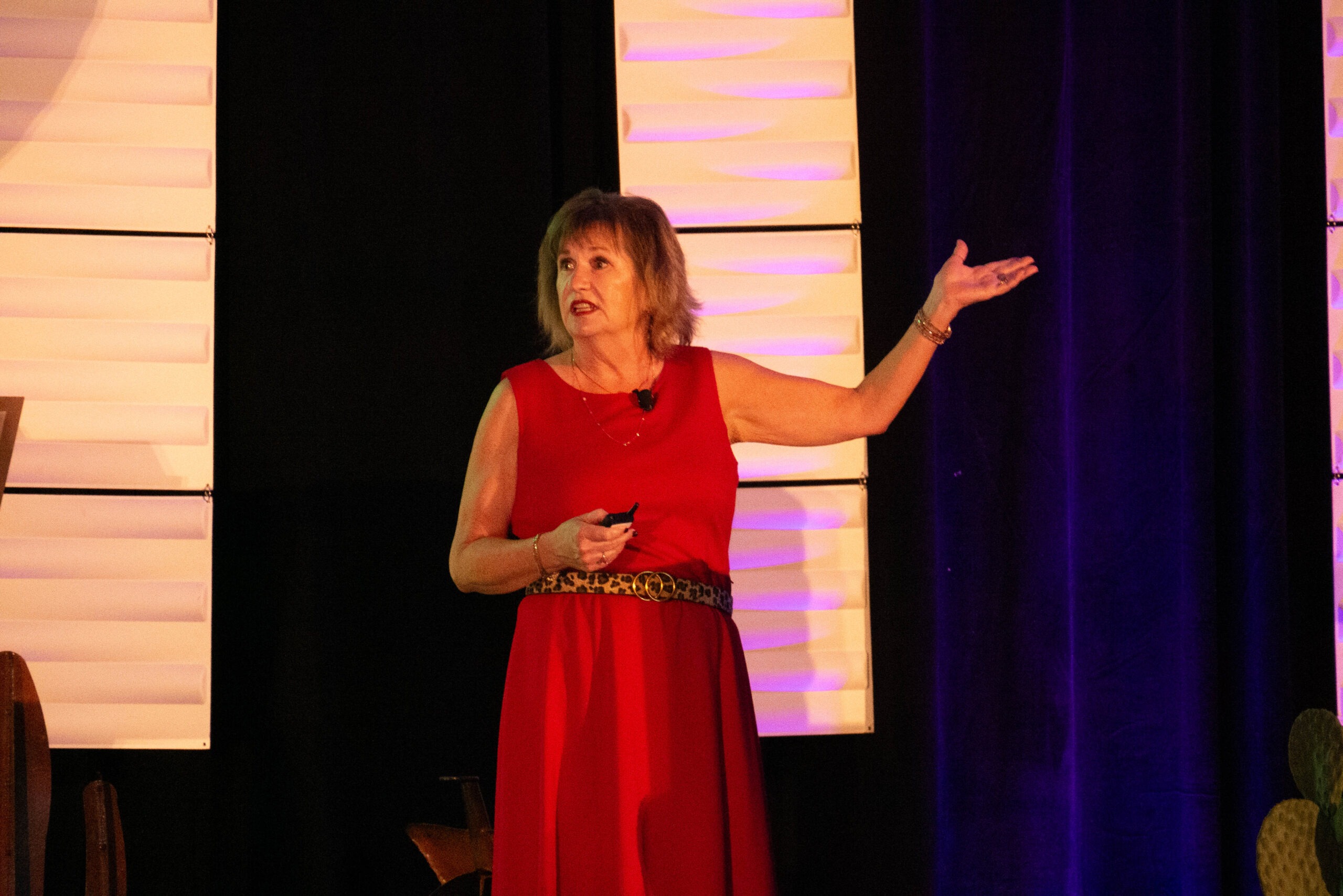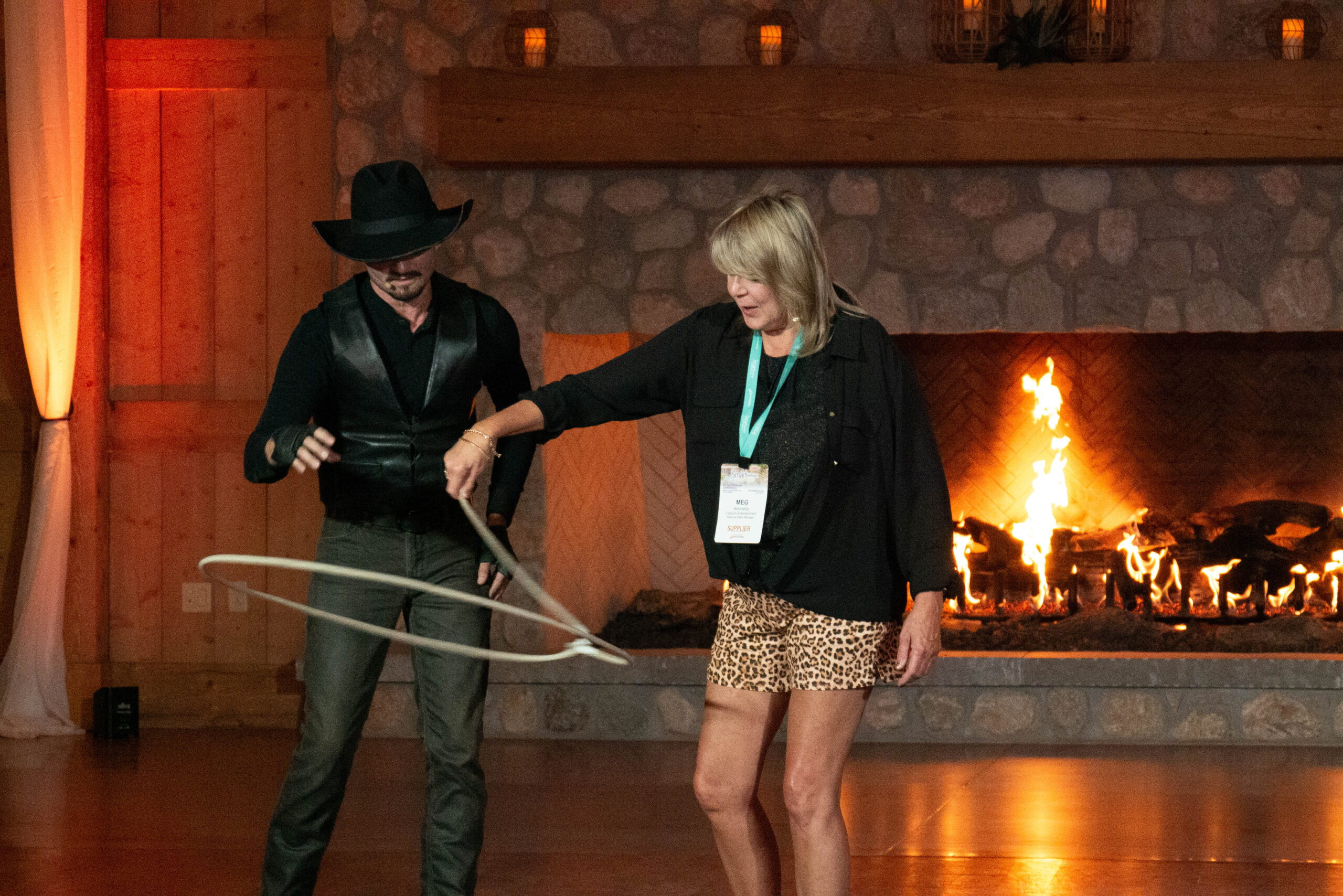Smart Meetings Extraordinary Experience focused on setting and reaching event goals
When some of the most productive meeting professionals in the world meet in majestic The Westin La Paloma Resort & Spa in Tucson for three days of education, inspiration and networking, the experience has to be over the top. “We are going to have fun and get work done,” Smart Meetings founder and CEO Marin Bright promised in her kick-off this week and she delivered. From an ‘80s party complete with an in-character DJ and a dude ranch that included a lasso-swinging cowboy and line dancing lessons to a pinata-making CSR project and both fireworks and a drone show, the wow-factor was on display.
Read More: Register for a future Smart Meetings Extraordinary Experience
Best to Better

First, Olympic gymnastics champion Carly Patterson shared her quest, triumph and struggle to come to terms with normal life after reaching the pinnacle of her sport at age 16 and retiring after an injury to finish school and find a second act.
“The trick is to embrace the spark,” she said. “When you feel a tug on your attention, listen to your curiosity because that could spark passion and lead to so much more.” She followed with a singing career that didn’t immediately reach the sky-high goals she was used to achieving. “Take chances; step into the uncertain,” she encouraged. “It’s going to be difficult, scary and challenging but that makes it more worth it,” she said. “A podium is a just step and there will always be competition. Let that drive you to be better.”
Read More: Smart Chat: Michelle Roark, The Resilience of an Olympian
Even gold medal winners have disappointments and distractions. “Save the setback for later,” she said. “You have the choice about how you deal with it and whether you can do the hard work to reach your goals.”
Patterson learned when she was grappling with starting a family that there are some things we can’t control. She decided just to focus on the things she could manage and embrace the lessons in disappointments. “Going through the journey made me the person I am today,” she shared. “Setbacks can be the greatest setups for future success,” she said after showing a picture of her family today.
Contract Lessons

When the focus of the event is finding new places to bring events, kicking off with a lesson in what to include—and leave out—of contract clauses is always a good idea. Phoenix-based hospitality attorney Lisa Sommer Devlin offered some straight talk.
“Start with your must-haves upfront,” she said. “Don’t wait until the end and suggest an addendum. Instead negotiate everything at once with the clauses that fit your needs rather than using general, boilerplate language that could just end up in litigation.”
Some of the clauses she sees causing the most angst right now:
Data Policy: Everyone has to follow the laws and all hotels have their own data privacy policies. Don’t layer yours on top because the hotel will just default to their own. Plus, personally identifiable information is covered by civil liability laws and guest expectations. What you do need to understand is that the planner will need to get permission from attendees to share information with the hotel so you can compare rooming lists for room block verification.
Confidentiality: Whether the group is talking about potato chips or nuclear launch codes, the hotel doesn’t want to and can’t be liable for anything that could possibly leak. Instead of a general, sweeping clause, negotiate what steps will be taken to keep information secure, such as locking the door, hiring security guards, keeping attendants out of the meeting, providing shredders for documentation and education of attendees about how they treat the information shared.
Political: Putting into a contract that if a state passes a law the group doesn’t agree with, they can cancel, puts the burden of your politics on the hotel. Instead, have conversations with the hotel and attendees to talk about what you can and can’t do and how to mitigate.
Read More: Weaponization of Travel: Navigating Cultural Obstacle Courses
Lowest Rate: Every contract is a futures agreement. You are making a deal based on an entire package, including concessions. If you throw in a “lowest rate available at the time” clause for rooms a year in advance, that could change the equation on the rest of the agreement. And most planners wouldn’t agree to a “highest rate available at the time” clause in case prices go up.
Thou Shalt Not: This could apply to stipulating that the hotel can’t “walk” guests, change the space or cancel if something happens and rooms aren’t available because of something unexpected that makes the original rooms unavailable. If there is a fire, the hotel may have to do some or all of those things. Instead, negotiate a walk clause so you are involved in deciding who is moved to another hotel and what the concession will be.
Guarantee of Service: This is difficult to define and enforce. Instead, have a conversation about what is important, having rooms ready, daily housekeeping, late hours on the lobby bar. That will help the hotel prioritize.
Force Majeure: This still applies only to circumstances that make the meeting illegal, impossible or commercially impracticable. It has to be a “can’t” vs. a “I don’t want to.” Instead, talk to the hotel about managing attrition if possible and come to an agreement.





